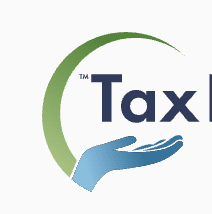In this guide, you'll learn exactly what an income tax return is, what it includes, why it’s important to file correctly, and what happens if you don’t.
If your tax situation is complex, our best tax relief companies can help you address your specific needs and potentially reduce what you owe.
Key Insights
- An income tax return reports your income, deductions, and tax owed (or refunded) to the IRS.
- Filing on time helps you avoid penalties, claim tax credits, and receive refunds.
- There are different tax return types, from individuals (Form 1040) to corporations (1120) and partnerships (1065).
What Is an Income Tax Return?
An income tax return is a document you file with the government to report your income, deductions, and tax liabilities for the year.
Your tax return typically includes details about your wages, interest earnings, business income, and any deductions like student loan interest, childcare credits, or medical expenses.
Filing your return each year allows you and the government to determine your tax liabilities and assess whether you owe additional taxes or should receive a tax refund.
Types of Tax Returns (1040, 1120, 1065)
There are several types of tax returns, each required of a different individual or organization:
- Individual tax returns (Form 1040): Most Americans with earned income over a minimum amount must file a Form 1040 or individual return.
- Corporate tax returns (Form 1120): Businesses structured as corporations must file Form 1120 to report their income, deductions, gross profits, tax credits, and shareholder dividends to the government. S-Corps use Form 1120S to report the same data to the government.
- Partnership returns: Partnerships pass-through income to owners and these businesses use Form 1065 to file with the government to report their income, deductions, net profits or losses, tax credits, and any distributive shares.
Why Filing a Tax Return Matters
The government requires businesses and individuals with income above certain thresholds to file taxes by April 15th each year.
Not filing on time comes with serious consequences. The federal failure-to-file penalty is typically 5% of taxes owed per month, up to 25% maximum. Returns over 60 days late face a minimum penalty of either $510 or 100% of taxes owed, whichever is less.
While filing is legally required, there are also significant benefits to filing on time:
- Receiving refunds for overpaid taxes.
- Claiming valuable tax credits like the Earned Income Tax Credit (EITC) or Child Tax Credit.
- Qualifying for financial aid (such as FAFSA) and loan applications, which typically require tax returns for approval.
What’s Included in an Income Tax Return
Documents to Gather
- Personal information: Your Social Security number or Taxpayer Identification Number (TIN), photo ID with date of birth, and full name, current address, filing status, and bank details for direct deposit. Include spouse or dependent information if applicable, plus last year's returns for reference.
- Income documents: W-2 forms from employers, self-employment records, all 1099 forms for various income types, and Forms 1095 for health insurance verification.
- Credit and deduction documentation: Records for childcare, education, retirement contributions, mortgage interest, property taxes, medical expenses, charitable donations, and home improvements that may qualify for tax benefits.
Understanding Income Types: Earned vs. Unearned
Your tax return covers two types of income:
- Earned income: Money from working, including wages, salaries, tips, commissions, and bonuses.
- Unearned income: Money received without working, such as interest, dividends, capital gains, rental income, unemployment benefits, Social Security benefits, and pensions.
Important Filing Notes
- Document timeline: Tax documents typically arrive between mid-January and the end of February, giving you time to prepare.
- Accuracy matters: The IRS receives copies of all your tax documents from employers and payers. Incomplete or incorrect returns can trigger audits, resulting in interest charges and delayed refunds.
- Long-term considerations: The IRS has three years to review your return. Filing accurately the first time saves time, money, and stress, preventing the need for amended returns later.
Tax Deductions vs. Tax Credits: What’s the Difference?
Deductions and credits both mean you pay less tax, but they do so in different ways.
- Deductions: These lower your taxable income. Examples include student loan interest, mortgage interest, charitable donations, traditional IRA contributions, and self-employment expenses.
- Credits: These directly reduce the taxes you owe dollar for dollar. Examples include earned income tax credits, child tax credits, energy-efficient home improvement receipts, and premium health tax credits for marketplace insurance.
How Is Your Tax Liability Calculated?
Here's how your taxes are figured out:
- Total income: Add up everything you earned (wages, tips, etc.) and didn't earn directly (interest, dividends, etc.).
- Find taxable income: Subtract your eligible adjustments and deductions from your total income.
- Calculate initial tax: Apply your tax bracket percentage to your taxable income.
- Apply tax credits: Subtract any tax credits you qualify for.
- Compare with taxes paid: Check how much you've already paid through withholding or quarterly payments.
The final result determines whether you get money back or need to pay more:
- If you paid more than you owe: You'll receive a refund.
- If you paid less than you owe: You'll need to pay the difference.
How to File Your Income Tax Return
Filing Options
- Electronic filing: The IRS recommends online software for the easiest, fastest, and most accurate returns. E-filed returns are typically processed with refunds issued in three weeks or less.
- Paper filing: You can still complete your return using IRS Form 1040. However, this method is more prone to errors, and paper returns take about four weeks to process. Mailed refunds require six to eight weeks from filing to receipt.
- Professional assistance: Working with a Certified Public Accountant (CPA), registered tax preparer, or tax attorney is ideal for complex situations. Professionals typically e-file on your behalf, though you may need to schedule appointments well in advance during tax season.
Key Deadlines
- Federal filing deadline: Typically April 15
- Extension deadline: October 15 (if requested by filing Form 4868)
Remember that an extension gives you more time to file your paperwork, but not more time to pay any taxes owed.
Common Mistakes to Avoid When Filing
When preparing your tax return, watch out for these common tax errors that can trigger delays, rejections, or even audits:
- Identity information errors: Double-check all Social Security Numbers and dates of birth for yourself, your spouse, and dependents. Even a single digit mistake can cause your entire return to be rejected.
- Incomplete income reporting: Include all income sources, even from part-time work, freelancing, investments, or unemployment benefits. The IRS receives copies of your income documents and will flag missing items.
- Calculation mistakes: Be careful when determining deductions and credits. Tax software helps with calculations, but you still need to enter correct information.
- Missing signatures: An unsigned tax return is invalid. For e-filing, this means your electronic signature PIN; for paper returns, physical signatures are required from both spouses for joint returns.
- Missing the deadline: File by April 15 or request an extension to avoid penalties. Remember, extensions give you more time to file paperwork, not more time to pay.
What Happens After You File?
The IRS processes e-filed returns within 21 days, and direct deposit returns should arrive before the three weeks are up. Paper returns take four weeks or more, with refunds arriving six to eight weeks after filing.
The IRS "Where's My Refund" tool allows you to track your return's status from filing to completion.
How to Respond to IRS Audits or Notices
If the IRS contacts you for additional information or to inform you of a tax audit, you must respond by the deadline listed in the notice to avoid further penalties or issues.
Audits are selected at random or because of a problem with your return. Consider contacting a tax professional to assist you with the process, especially if your audit appears complex.
Read the notice carefully to understand what additional documentation they are requesting and why. Gather all relevant documents requested in your notice and make copies for your records, including any supporting information or statements.
FAQs
What documents do I need to file my income tax return?
You'll need personal identification documents (SSNs, photo IDs), income records (W-2s, 1099s), deductions (mortgage interest, charitable donations, retirement contributions), and records of any tax payments made during the year.
Who is required to file an income tax return?
Individuals must file an income tax return if their income is above a certain amount based on their filing status, age, and type of income. Even if your income is below the IRS threshold, you may still choose to file taxes to receive credits or refunds.
What happens if I miss the deadline for filing my income tax return?
File as soon as possible if you miss the deadline. If you owe taxes, you'll face a 5% monthly penalty (up to 25%) plus interest. If you're due a refund, there's no penalty, but you won't receive your money until you file.
Conclusion
Filing your income tax return on time is both a legal obligation and a chance to optimize your finances, especially if you're due a refund. For complex situations, our recommended tax relief services can provide valuable, personalized guidance.
Accurate, timely filing maximizes potential refunds, prevents delays and audits, and keeps you in good standing with the IRS. A bit of preparation now can save significant stress and possibly money later.
Meagan Drew is a personal finance and loans expert at BestMoney.com. She has written for publications such as Investopedia, Apple News+, and SimpleMoneylyfe.com. With seven years of experience as a financial advisor, Meagan specializes in making complex topics like budgeting and investing accessible and engaging for everyday consumers.



